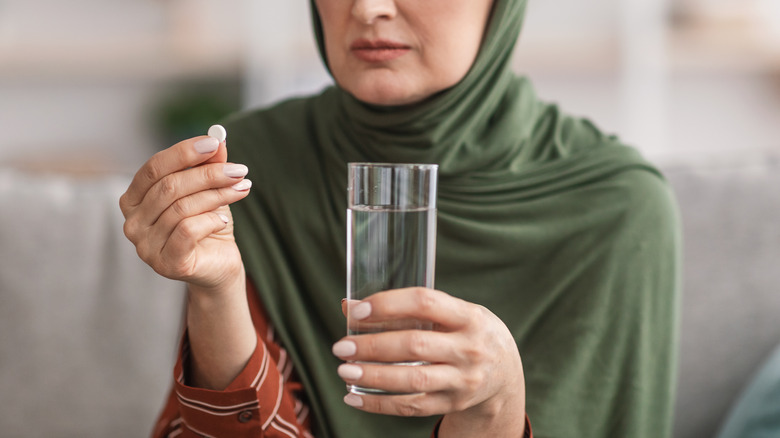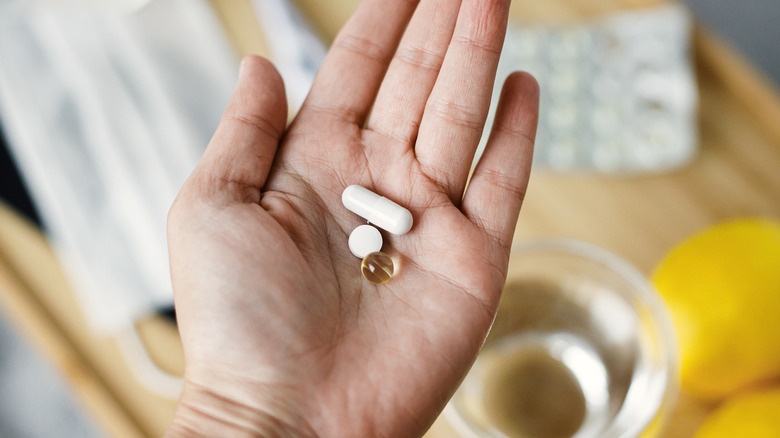The Vitamins You Need If You Have Anxiety
Your palms are sweaty, your heart is pounding, your stomach is in knots, and you're overwhelmed by a feeling of dread. Does this sound familiar to you? Most of us have experienced anxious feelings at one point or another but for those who struggle with anxiety on a regular basis, you know how challenging it can be to manage and live with it.
Anxiety manifests differently for everyone and you may experience it in a variety of ways. Mood-wise, anxiety can show up as irritability, feeling on edge, constant worrying, or a sense that something horrible is about to happen. Physically, you may experience rapid breathing, a pounding heart, and trouble sleeping (via National Institute of Mental Health).
There are many ways to help manage anxiety. Therapy, medication, and breathing exercises have all been shown to help alleviate symptoms, according to Healthline. Interestingly enough, the vitamins in your body (or lack thereof) can also affect your mental health. Psychiatrist and nutritional therapist Dr. Jennifer Kraker told HuffPost, "Optimal mental health requires adequate availability and absorption of vitamins, minerals, and amino and fatty acids as essential building blocks for our brain cells and neurotransmitters. When our nutritional biochemistry is imbalanced, our mental health is affected."
Vitamin deficiencies related to anxiety
According to WebMD, our mind/body connection is so strong that vitamin deficiencies can cause mental health problems. Because your body's main goal is to achieve balance, lacking in certain vitamins and minerals can directly affect your anxiety levels.
A lack of vitamin D, which you absorb from sunshine and foods like salmon and eggs, has been linked to higher anxiety levels (via NHS). A 2015 study published in the journal Physiological Research found that vitamin D deficiency was associated with anxiety disorders.
B complex vitamins, a group comprised of eight different vitamins and minerals, are also associated with your mental health, according to Medical News Today. B vitamins are found in foods like beef, yeast, yogurt, and sunflower seeds, per Healthline. A 2018 study in the Journal of Functional Foods found that people who ate yeast-based spreads, which have naturally high amounts of vitamin B, had significantly lower anxiety levels than those who didn't.
While there are great options for vitamin-specific supplements that have been found to decrease anxiety, you may also experience relief from your symptoms with a multivitamin. A 2019 study published in the journal Current Developments in Nutrition found that young adults who started taking a daily multivitamin reported decreased anxiety levels after 30 days. Keep in mind that before starting any vitamin regimen, it's a good idea to first check in with your healthcare provider.


